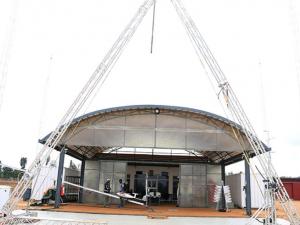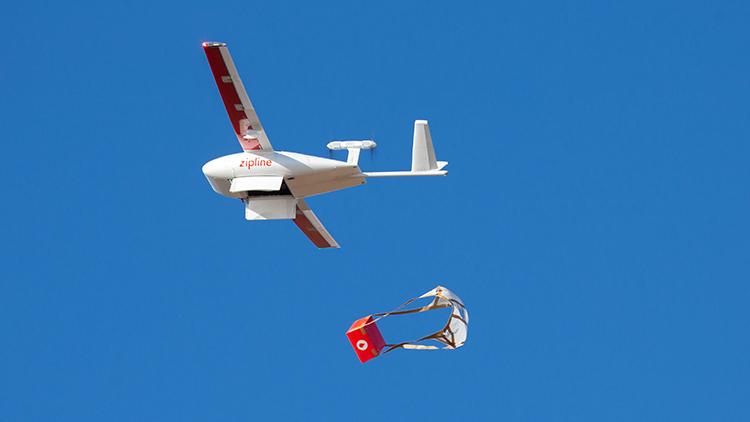
Delivery drones: Why Zipline is switching to 24/7 operations
Hospitals in Rwanda will now receive much needed medical supplies and personal protective equipment from drone firm Zipline on a 24-hour basis.
The new operation method, according to the firm’s country director, Joseph Ndagijimana, was launched on Thursday, February 16, after securing approval from the Rwanda Civil Aviation Authority.
He explained that ever since Zipline launched its operations in Rwanda in 2016, there has been a sharp night-time demand from various hospitals.
“Some of them come to the distribution centres and then, you know, they would pick up some products from our bank. This pushed us to expand our operations to be able to sustain even the emergencies at night,” he said.
“Of course we had to look for approval, and we are pleased to be the first country in all the countries that Ziplines operates from,” he added.
Currently, Zipline has a fleet of about 65 drones, with a capacity to carry out 150 deliveries from each of the distribution centres.

The firm has already established partnerships with a total of 320 health facilities especially in remote areas.
“Some of the hospitals used to requisition for medical products towards the end of the day because we were not available during the night. This means that now they can’t do that anymore, they can wait to order until they need that product or if their stock gets below minimum level.” He said.
Knowing that they (hospitals) can call Zipline at any time of the day, that is what we are providing, Ndahijimana added.
“It basically comes with a sense of security knowing that even if you don’t have it you can always get it when the situation presents itself.”
“Some hospitals used to transfer patients, because maybe they didn’t have the blood type a patient needed in that particular time. And if you do the transfer to a different health facility that will lead to a higher cost.”
Consequently, he noted that the move will ensure that unlike in the past, hospitals will reduce on the amount of inventory they had, “because they can get it on demand.”
Currently, the drone firm delivers more than 200 different medical products including emergency vaccines.
Medics speak out
Speaking to The New Times in a phone call interview, Director General at Rwamagana District Hospital, Dr. Jean Nepo Abdallah Utumatwishima, commended the move citing that, majority of the patients who lose their lives at night result from the lack of timely delivery of blood among other medical products.
“Most emergency situations that call for blood transfusion occur at night, and this is a big problem especially in remote area.”
With Zipline switching to a non-stop service, there is hope that these patient’s lives can be saved.
“Because in most cases this patient can’t wait for the morning hours. So if you can place an order that can come in time, you will have a chance to save a life.” Utumatwishima reiterated.
Home deliveries in the pipeline
Meanwhile, Ndagijimana revealed that patients could soon receive their medical deliveries directly in their homes from the drone firm.
When pressed for details he said, “This is maybe something we can talk about but we are also thinking about delivering products directly to some patient’s homes, at some point, this is a project in the making.”
Since making its first drop in Rwanda in 2016 out of its Muhanga-based distribution centre, Zipline has since expanded its activities in other countries including Ghana and the United States.
